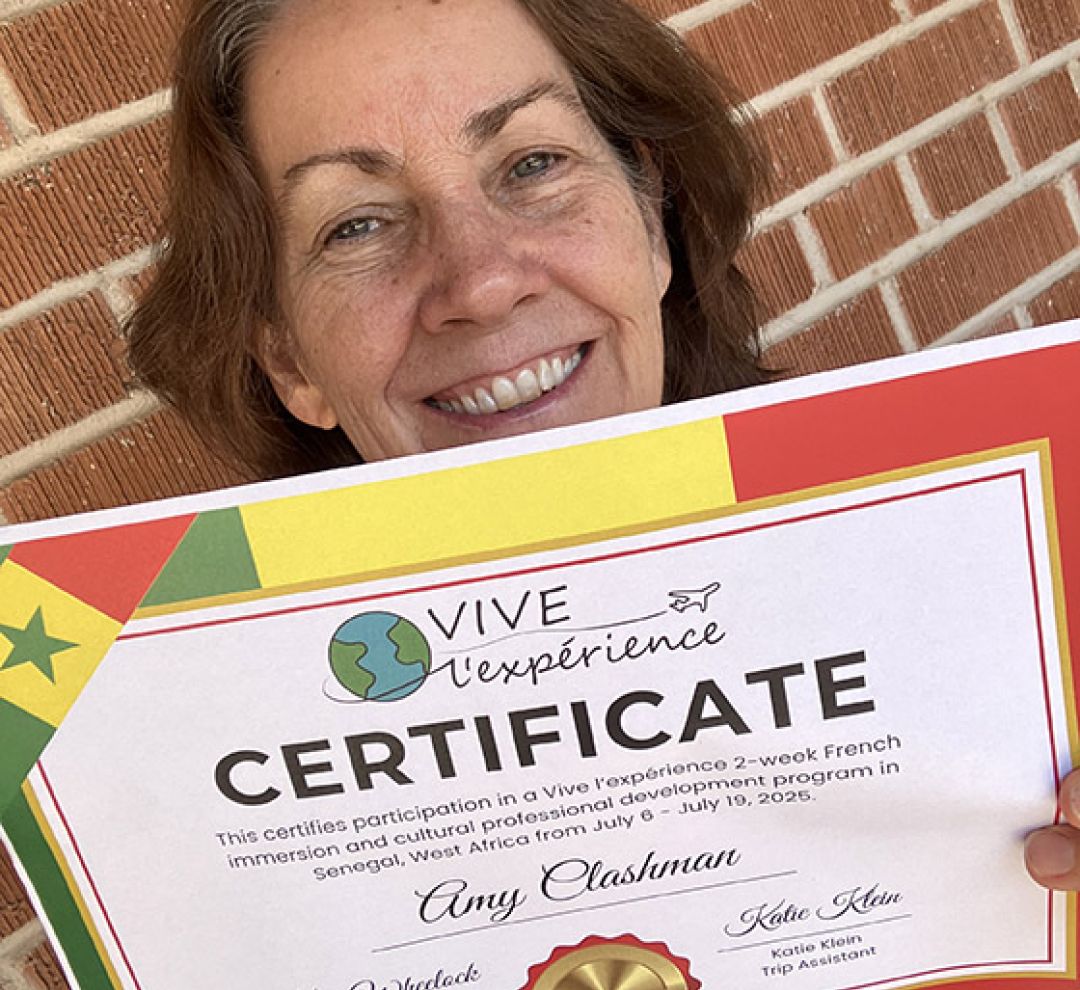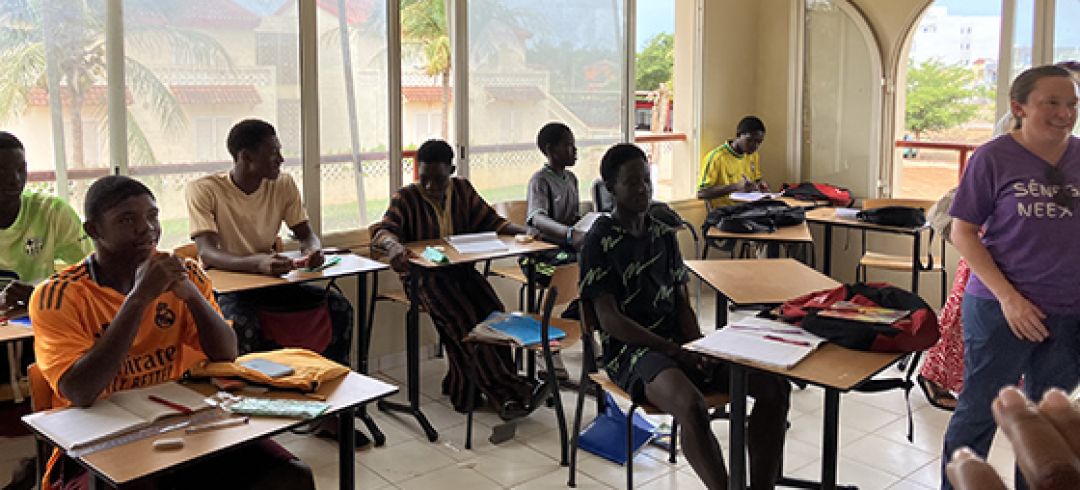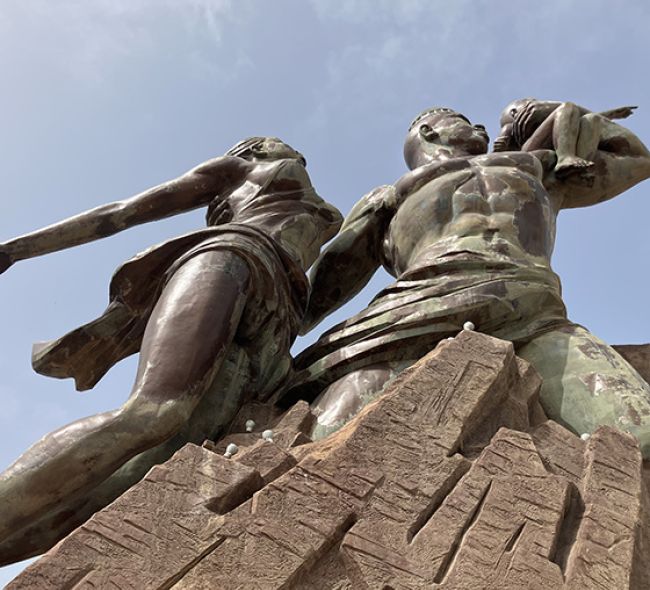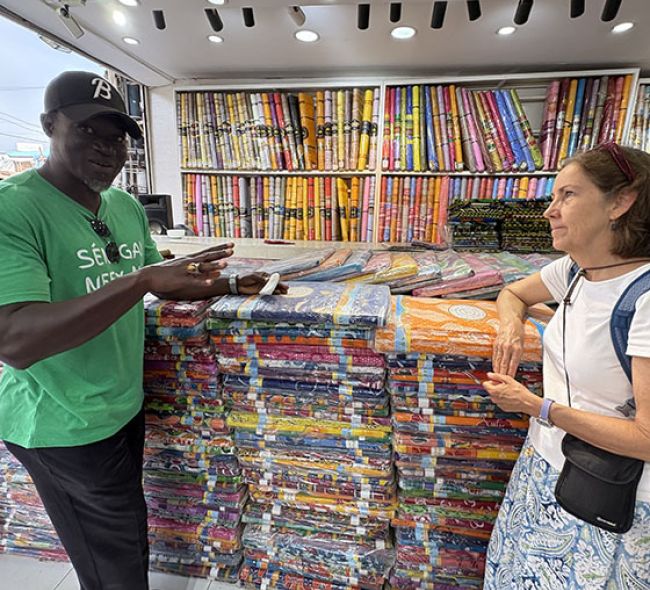



Sénégal 2025: Vive l'expérience
by Mme Amy Clashman
To show gratitude to all the teachers who have helped launch their children toward their goals, Gregory School senior parents make a class gift each year to our E.E. Ford Fund for Faculty Professional Development. Recognized at Commencement, the class gift, and the fund in general, are used solely to provide professional development opportunities to our teachers. These opportunities have included everything from completing graduate degrees to developing curriculum to attending teacher workshops and programs. Teachers then return to campus and apply their experience with their students and colleagues. This week, TGS French teacher, Mme. Amy Clashman, shares her summer professional development adventure, which was paid for in part by this fund.
This summer I had the good fortune to participate in a program with French teachers in Senegal, West Africa. The trip provided two solid weeks of French immersion and numerous opportunities to learn firsthand about the culture. I am grateful to have received the EE Ford grant, which helped to defray the cost of the program.
Our trip was phenomenally well organized by Katy Wheelock, a French teacher from Virginia whose passion is to facilitate discovering less-visited countries, notably Senegal and Tunisia. Each day outdid the last in what we were able to do. We visited a high school, a university, a soccer academy, a mosque, and an art institute aimed at urban youth, among other things. We had a djembé drumming lesson, tried our hand at making batik, bargained in the market, and helped clean up a beach with Senegal’s famous Plastic Man. One of our most memorable and chilling activities was the visit to Ile Gorée (the Island of Gorée), a UNESCO World Heritage Site which was the largest slave trading center on the African coast in the 15th to the 19th century.
To prepare for the trip we learned some expressions in Wolof, a language widely spoken in that area. My favorite Wolof phrase was “Nio farr,” meaning “We are all in this together.” It was clearly ingrained in the Senegalese culture. People were warm, welcoming, accepting, and exceptionally trusting: A waitress in a fast food restaurant handed her baby to us to take care of while she fixed our food. We are all in this together; we’re here to help each other out. Senegal clearly has problems – there is poverty, underemployment, and the lack of a formal safety net for vulnerable people. But I am left with a memory of a rich and welcoming culture, the land of teranga, or hospitality. I’m excited to share this experience with my students.